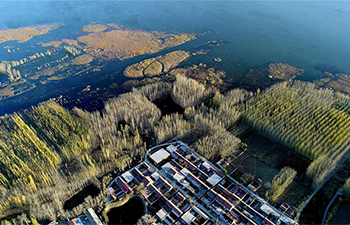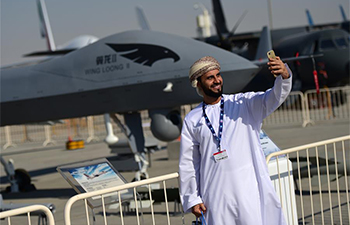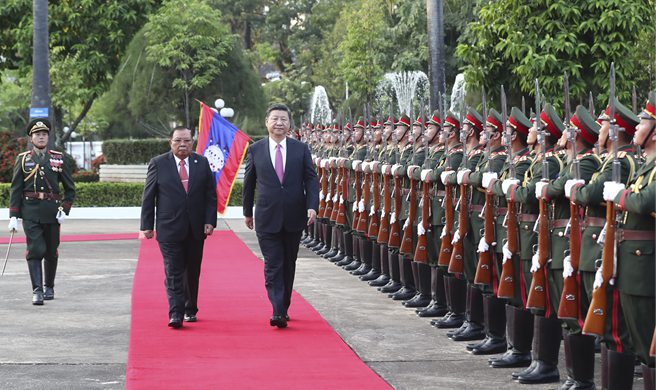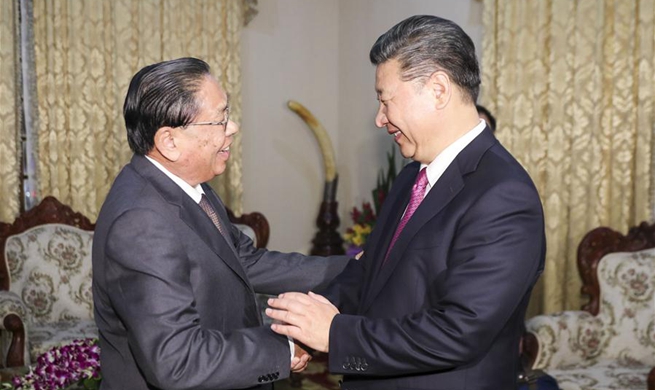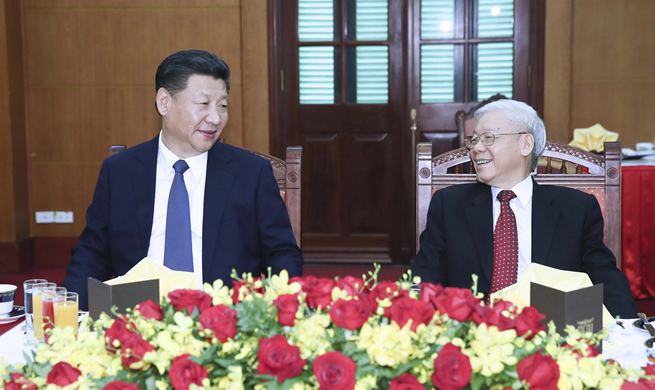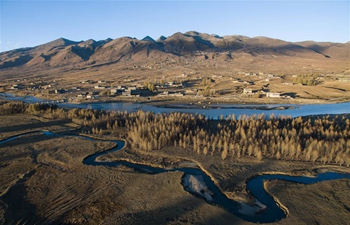MANILA, Nov. 14 (Xinhua) -- Leaders from 10 member states of the Association of Southeast Asian Nations (ASEAN) and six ASEAN dialogue partners meet here Tuesday to seek an early conclusion of the Regional Comprehensive Economic Partnership (RCEP) negotiations.
RCEP is a free trade agreement (FTA) scheme of the 10 ASEAN member states and its FTA partners, namely China, Australia, India, Japan, South Korea and New Zealand. It is based on open accession, which would enable any of the ASEAN FTA partners to participate, either from the outset or when they are ready to join on a later date.
Aimed at removing intra-region trade barriers, creating and optimizing liberal investment environment and expanding trade of services, RCEP will also cover fields like intellectual property rights protection and competition policies and have broader and deeper engagement with significant improvements over the existing FTAs between ASEAN and its partners while recognizing the individual and diverse circumstances of the participating countries.
RCEP could potentially transform the region into the world's largest trade bloc, comprising over 3.5 billion people and covering nearly one third of the global economy in 2016.
The plan for the RCEP was first mooted at the 18th ASEAN Economic Ministers Meeting in Nay Pyi Taw in February 2011, where the economic leaders, eyeing a comprehensive free trade agreement with its dialogue partners, brought forward a draft on building the RCEP.
At the 19th ASEAN Summit held in November 2011 in Bali, Indonesia, the leaders officially endorsed the RCEP and adopted an ASEAN Framework for RCEP, which outlined the general principles for establishing the RCEP.
During the 44th ASEAN Economic Ministers Meeting and Related Meetings in August 2012 in Cambodia, economic ministers from the 10 ASEAN nations and six partners agreed to start by the end of 2012 the negotiation among the 16 nations on RCEP.
The first round of negotiations on the RCEP kicked off in May 2013 in Bandar Seri Begawan, Brunei by ASEAN and its six FTA partners, as officials of the 16 governments gathered to start detailed negotiations.
The second round of RCEP negotiations was held in September 2013 in Australia, where delegations primarily focused on trade in goods as well as trade in services and investment.
At the third round of the RCEP negotiations in Kuala Lumpur, Malaysia in January 2014, participating countries pursued an intensive exchange of views to advance the negotiations while continuing technical work on trade in goods, services and investment.
During the first three rounds of talks, seven working groups have been established for detailed cooperation. The groups cover goods trade, service, investment, economic and technological cooperation, intellectual property rights, competition policies and dispute settlement.
The fourth round of negotiations was held in April 2014 in Nanning, China, with a focus on tariff concessions and service and investment liberalization.
Of the latest, the 20th round of official negotiations on RCEP was held in South Korea's western port city of Incheon in October. All sides continued to discuss the issues regarding goods, services, investment and rules, and developed a draft of the joint assessment report which will be handed over to the leaders at the Manila summit.
The Philippines, as the rotating chair of ASEAN for 2017, has urged all related parties to fast-track the negotiations to an early conclusion.





